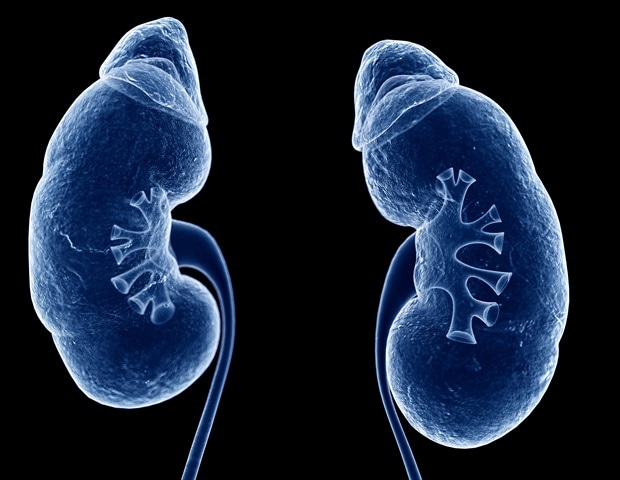Despair and nervousness are ceaselessly handled with vitamin adjustments amongst girls all through being pregnant or postpartum. Now not a lot is understood, alternatively, concerning the effectiveness of such interventions. A new analysis paper stories the findings of a scientific overview aimed toward figuring out the advantages of such nutritional adjustments in those scenarios.
 Learn about: Nutritional interventions for perinatal despair and nervousness: a scientific overview and meta-analysis of randomized managed trials. Symbol Credit score: fizkes / Shutterstock
Learn about: Nutritional interventions for perinatal despair and nervousness: a scientific overview and meta-analysis of randomized managed trials. Symbol Credit score: fizkes / Shutterstock
Creation
The perinatal duration, stretching from conception to at least one yr following childbirth, is a susceptible time for expectant and new moms. As much as a 5th of them revel in despair or nervousness presently, affecting their high quality of lifestyles and well being and that in their young children and households. Unfortunately, handiest a couple of 10th of those sufferers are handled with evidence-based protocols, even supposing the in poor health results of despair are well known.
Psychotherapy is meant to be some of the higher interventions however faces a continuing drawback because of low numbers of to be had therapists, prime prices, low protection, and investment. As well as, psychotropic medicines are continuously have shyed away from because of the perceived chance of teratogenicity or fetal hostile results.
Many ladies suppose that nutritional interventions are protected and hint mental disturbances to dietary abnormalities that may be corrected by means of nutritional adjustments. Dietary supplements touted to reinforce despair or nervousness signs are seemed to be herbal and are quite out there and inexpensive in comparison to prescription medicines.
Over 80% of girls file a number of nutritional adjustments all through the latter months of being pregnant. The present overview, revealed in The American Magazine of Medical Diet, examines the effectiveness of such interventions in treating perinatal despair or nervousness. The findings may assist form higher tips for the scientific control of such girls and establish the position of nutritional interventions, whether or not as number one or adjunct treatments.
What did the learn about exhibit?
The researchers used 28 articles on nutritional interventions to regard perinatal despair without or with nervousness. Those research got here from a number of international locations, essentially the most important quantity being from Iran and america. Whilst over part assessed the results of supplementation with omega-3 and omega-6 fatty acids, eicosapentaenoic acid (EPA), and docosahexaenoic acid (DHA), others handled elemental metals, probiotics, nutrients, and amino acids.
Impartial analyses have been performed for every of the interventions and the timing of the intervention (being pregnant vs. postpartum). Since EPA and DHA had been proven, in previous analysis, to behave by means of other pathways and impact the organism in a different way, the have an effect on of various EPA: DHA ratios have been additionally evaluated.
The investigators discovered that polyunsaturated fatty acids (PUFAs) didn’t mitigate the indicators of perinatal despair considerably in comparison to controls.
This was once the case whether or not the intervention happened all through being pregnant or postpartum. Secondly, the intervention had no important have an effect on at the chance of perinatal despair or nervousness at an EPA:DHA ratio of <1.5 or ≥1.5.
Some previous opinions indicated a possible position for PUFAs in treating perinatal despair, however the present paper negated such an impact. This might be because of the heterogeneity between research, with a couple of interventions getting used concurrently in line with learn about, or a number of eligible research being excluded from some opinions.
The existing learn about tested 13 research with low ranges of heterogeneity however discovered no position for PUFAs. A loss of statistical energy, or using other dosages or classes of management of PUFAs, would possibly account for the loss of have an effect on of those dietary supplements, as they won’t take impact over quick periods of remedy. Low ranges of critical despair some of the learn about contributors may additionally scale back the entire have an effect on of the dietary supplements.
Once more, elemental iron, zinc, or magnesium dietary supplements didn’t reinforce the indicators of despair in being pregnant. Alternatively, iron might be helpful in treating girls with low iron ranges.
Copper supplementation from week 17 onwards, at 1 g/day, diminished depressive signs. Nutrition D did exhibit a small however important development in signs of postpartum despair.
“According to our outcomes, 1000 to 3500 IU in line with day of diet D for 8 weeks to six months considerably diminished signs of postpartum despair.”
An previous learn about discovered that 2800 IU or extra of diet D in line with day for 8 weeks or extra had the best possible luck price. Lately, clinicians counsel 2000 to 4000 IU of diet D in line with day all through being pregnant and postpartum.
What are the consequences?
That is the primary systematic overview to inspect handiest randomized managed trials (RCTs), desiring to form choices on psychological well being care all through the perinatal duration. The scientists coated macro- and micro-nutrients, one at a time assessed their have an effect on at other phases of being pregnant, and produced a story synthesis of interventions in research no longer eligible for the meta-analysis.
Since diet D appears to be related to a slight build up in psychological well being, there’s a want to identify the proper dosage of diet D dietary supplements in being pregnant and postpartum to steer clear of and discover overdosage.
On the similar time, they acknowledge the restrictions of the integrated research, equivalent to important bias, loss of baseline and end result knowledge, and failure to make use of uniform validated cut-offs for despair and nervousness ratings.
“The usage of the GRADE means, now we have evaluated our high quality of proof to be average. Thus, our evaluate of the present proof for nutritional interventions for perinatal nervousness and/or despair can give clinically related steerage for expectant and new moms, in addition to clinicians and researchers.”
Spotting those boundaries of a meta-analytic means, the researchers counsel a community meta-analysis to higher know how and which non-pharmacological measures are of assist on this situation. As well as, the standardization of remedy protocols and period of remedy and follow-up is very important to check the effectiveness of more than a few interventions.
The impact of complete nutritional interventions continues to be tested. General, alternatively, “The position of those interventions as monotherapy or as augmentation brokers for different therapies (e.g., antidepressants, psychotherapy) remains to be no longer transparent.”
Supply By means of https://www.news-medical.internet/information/20230404/Nutritional-interventions-show-mixed-results-in-treating-perinatal-depression-and-anxiety.aspx



